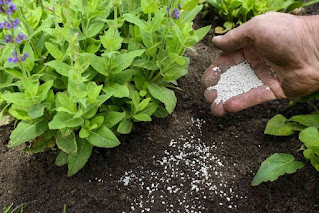Does thyme like poor soil?
Does thyme like poor soil?
Thyme, a fragrant and versatile herb, has found its way into the hearts and gardens of many. But when it comes to soil, does thyme have particular preferences, or can it thrive in poor soil conditions? In this article, we'll explore the relationship between thyme and different soil types, shedding light on whether thyme truly likes poor soil.
1: Thyme 101
Before we delve into the soil preferences of thyme, let's get acquainted with this remarkable herb. Thyme, scientifically known as Thymus vulgaris, is a low-growing perennial herb with aromatic leaves. It's prized for its culinary uses, medicinal properties, and its ability to add beauty to gardens and landscapes.
2: Ideal Soil Conditions for Thyme
Thyme, like many plants, has its preferred soil conditions. It thrives in well-draining soil that is moderately fertile. Ideally, thyme prefers a soil pH level between 6.0 and 8.0. This pH range provides the optimal conditions for nutrient absorption and overall plant health.
3: The Tough Cookie - Thyme in Poor Soil
Thyme has a reputation for being a hardy herb, capable of enduring less-than-ideal conditions. It can indeed grow in poor soil, but there are some caveats to consider. Thyme's ability to adapt to poor soil is impressive, but it may not reach its full potential in terms of flavor and growth.
4: Poor Soil Characteristics
To understand thyme's compatibility with poor soil, we must first define what "poor soil" entails. Poor soil typically lacks essential nutrients, organic matter, and proper drainage. It may be sandy, rocky, or compacted, making it challenging for many plants to flourish.
5: Thyme's Adaptation to Poor Soil
Thyme's survival strategy in poor soil lies in its ability to conserve moisture and nutrients. Its deep root system allows it to access water and nutrients that might be unavailable to other shallow-rooted plants. Additionally, thyme's growth slows down in poor soil, reducing its nutrient requirements.
6: Tips for Growing Thyme in Poor Soil
If you're determined to grow thyme in poor soil, here are some tips to help your herb thrive:
Amend the soil: Incorporate organic matter, such as compost, to improve nutrient content.
Monitor moisture: Regularly check soil moisture levels to ensure thyme receives adequate hydration.
Provide occasional nutrients: Supplement with a balanced, slow-release fertilizer to compensate for poor soil fertility.
7: Thyme's True Potential
While thyme can grow in poor soil, it truly shines in well-prepared, well-draining soil with the right pH levels. In optimal conditions, thyme exhibits vigorous growth, abundant foliage, and the full expression of its aromatic flavors.
Conclusion:
Thyme's adaptability to poor soil is a testament to its resilience as a herb. While it can survive and even thrive in less-than-ideal conditions, gardeners and enthusiasts may find that providing it with the best possible soil yields the most satisfying results. Whether you have rich loam or challenging clay, thyme remains a delightful addition to any garden, enriching both the palate and the senses.



0 Comments